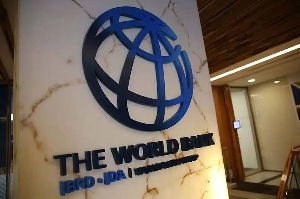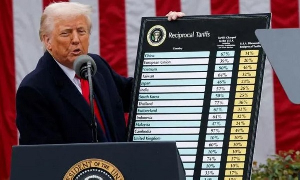Technical and vocational students have been urged to take measurements serious since it was once key component in their trade.
Engineer Samuel Amegbor, Manager, Vocational Training and Rehabilitation Institute (VTRI) at Biriwa in the Mfantseman Municipality said future technicians and artisans may not be able to efficiently take measurements for projects, if serious attention is not focused on such areas of study at the various vocational and technical institutions.
He gave the caution based on the nationwide poor examination results of Trade Drawings and Trade Science and Calculations courses by Technical and Vocational students.
He envisaged that builders and electricians would construct and wire up buildings that may collapse or burn as witnessed in recent times, if the issue was not addressed.
“This calls for serious attention else our future technicians and craftsmen and women would not be able to calculate precise quantities, estimates or costing … determine the right materials for specific job and interpret drawings for projects.”
Speaking at the second graduation and maiden Best Staff Awards ceremony at the School on Saturday, Mr. Amegbor blamed the poor performance on the lack of student commitment to their books and practical training, and lack of parental support.
A total of 281 trainees, made up of 105 who had completed a four year theory and practical training in various trades, and 176 others who pursued three year proficiency programmes, graduated and were issued with Foundation Certificates, Certificates I and Testimonials.
The ceremony, which was on the theme: “The role of Instructors, Parents and Trainees in providing Quality TVET Skills in the 21st Century,” was also used to award hardworking and dedicated staff of the school.
Mr. Amegbor expressed worry that 100 out of a total of 381 trainees, who enrolled in the institute four years ago, dropped out as a result of many factors including lack of parental support, and therefore, stressed the need for stakeholders to play their legitimate role effectively.
“For institutional and learning activities to be effective there is the need for instructors, parents and trainees to play their roles together effectively. If any of these stakeholders fails to play their role, the provision of quality TVET skills will not be attained,” he said.
He advised students to endeavor to complete the full content of their course to enable them to boldly face challenges on the job market.
The institute had introduced top up programmes on part time bases to re-strategise its training to cover job seekers and current workers and reiterated the institute’s commitment in improving its external examination performance, which currently stands at 70 per cent.
He enumerated challenges the institute faced to include lack of parental support in the payment of fees, inadequate teaching and learning materials, encroachment of the institute’s lands by residents, and the lack of vehicles.
Professor Joseph Ghartey Ampiah, Provost, College of Education, University of Cape Coast, noted that with the current expansion of the Ghanaian economy and increased industrialization, clients were demanding new and varied sophisticated services.
He added that formal, technical and vocational training was needed to complement indigenous informal training to respond to the sophisticated services in auto mechanics, electronics welding and air-condition.
He called for the creation of a platform for artisans, who were equipped intellectually and possessed superior practical skills to pass them on to other artisans and their apprentices.
He also called for partnership between informal and formal training institutions to help upgrade the competences of artisans in the informal sector.
Prof. Ampiah expressed worry over the high drop-out rate as well as the poor performance of external examination, especially in the trade subjects and urged current trainees to take their studies seriously.
Mr. Charles Amevor, Deputy Executive Director, National Vocational Training Institute (NVTI), noted that Technical Vocational Education Training (TVET) was the key to the technical, entrepreneurial and skilled workforce, which was a basic requirement for driving the engine of industrial and economic growth.
He, therefore, called for an effective relationship between instructors to ensure that curricula and teaching methodologies were up-to-date, and relevant to help trainees meet the dynamic work requirements.
Mr. Amevor also bemoaned low budget support from the government to assist some interventions like scholarship and free education to the TVET sector, especially NVTI since it was an undeniable fact that TVET was the foundation of the country's development.
Teachers were awarded with Television sets, Refrigerators, Fans, cash, citation and certificates of honour.
The Vocational Training and Rehabilitation Institute was established in 1974 to train the youth in the municipality with employable TVET Skills and has since its inception 40 years ago, trained more than 6,000 youth in construction, automobile, hospitality, woodwork and fashion designing.
Regional News of Wednesday, 24 December 2014
Source: GNA












